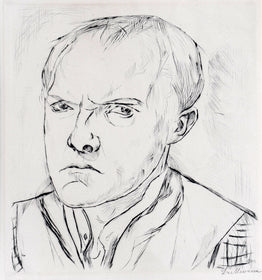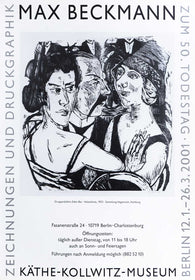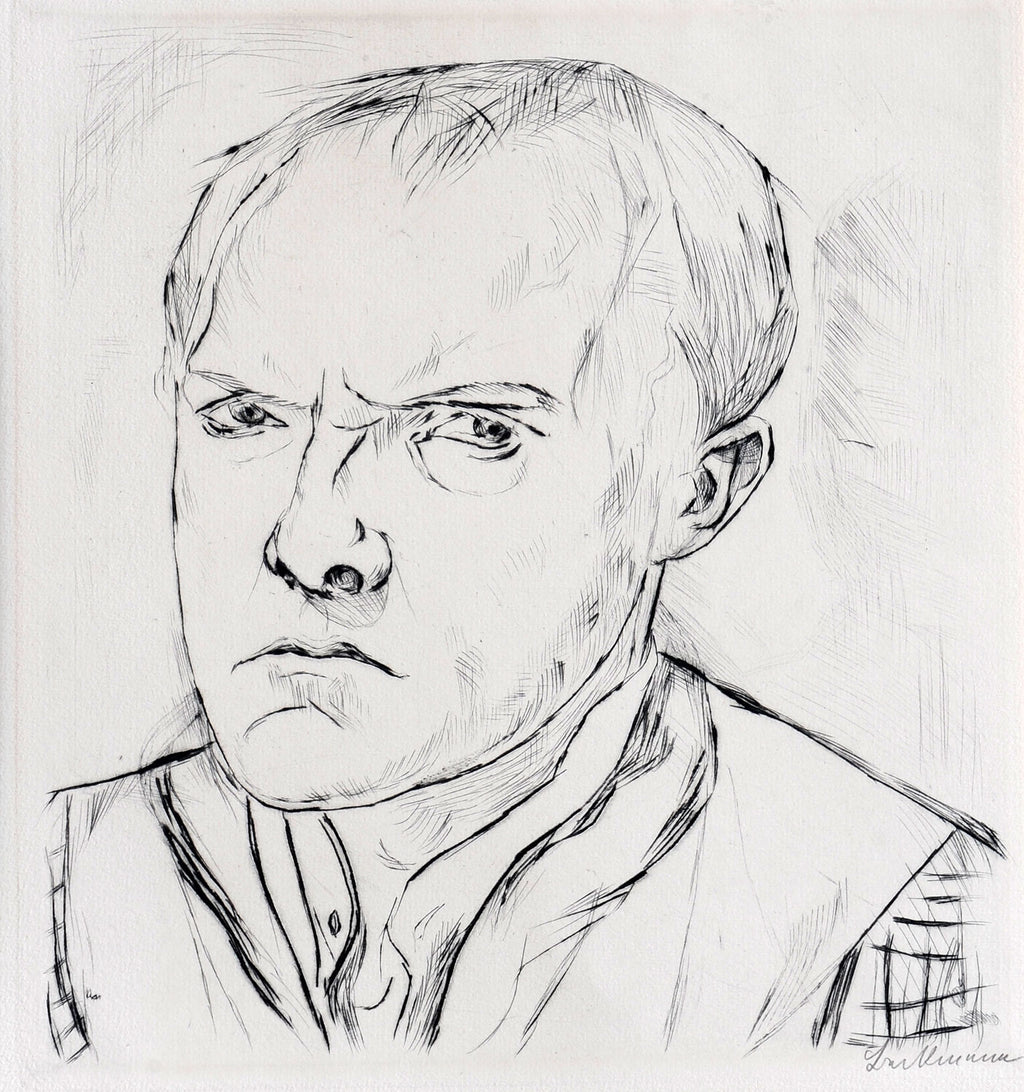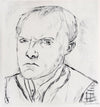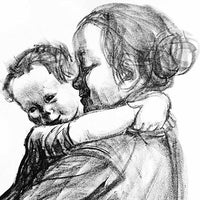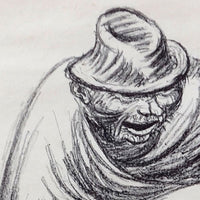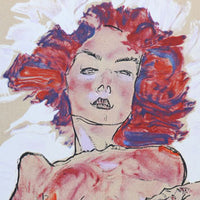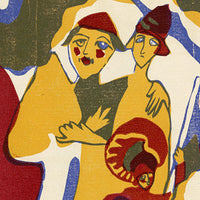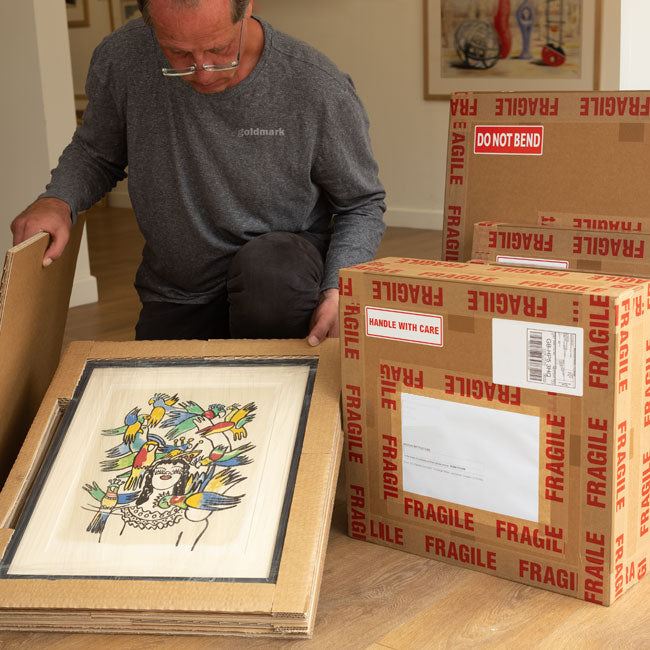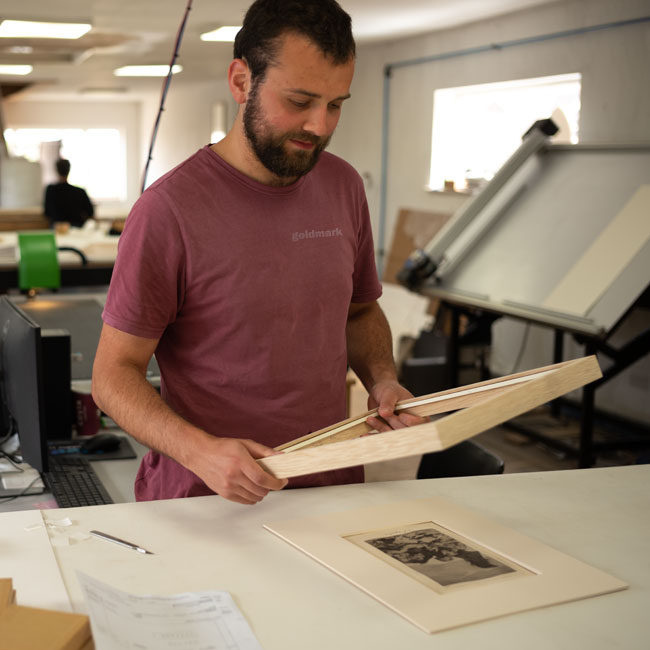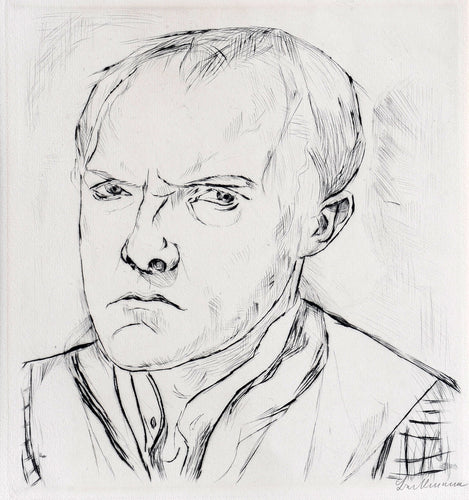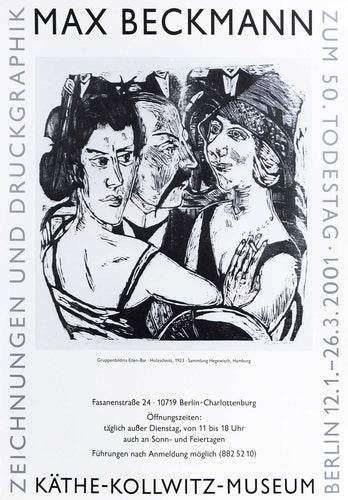Sometimes the word 'gallery' simply isn't enough. Yes, it's the core of a business dedicated to the best in painting, printmaking, sculpture and ceramics. But here the books turn into paintings, the paintings turn into films. Watch our short film to find out a bit more about us and what we do.

Self - Portrait, 1918
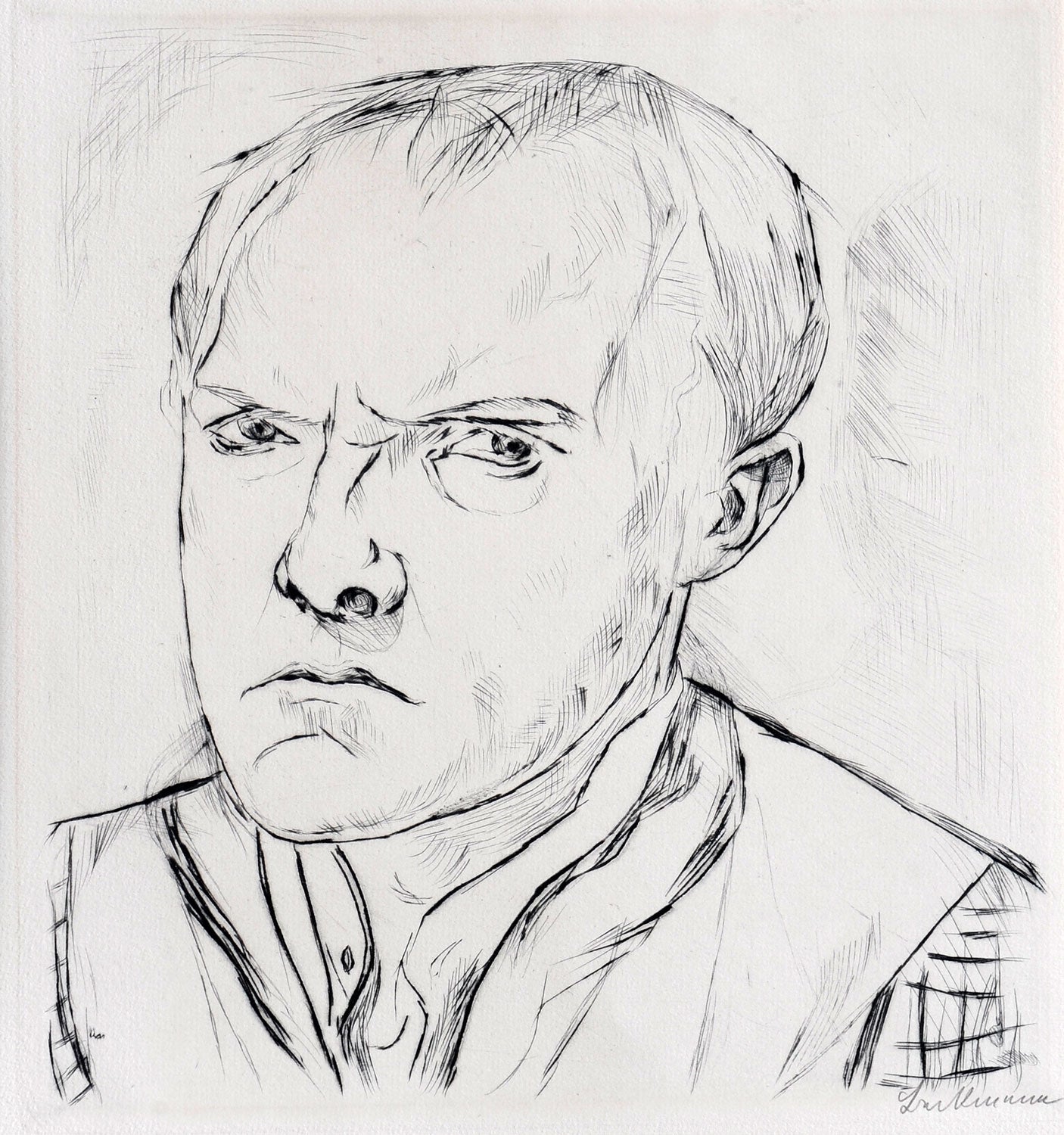

Best known for his extraordinary number of self-portraits, Beckmann received great critical acclaim throughout the years of the Weimar Republic, but his art was denounced by the Nazis and, upon Hitler’s ascension to power, rejected as degenerate art. Originally failing to gain a visa to the U.S. and painting in a studio in Amsterdam, Beckmann eventually emigrated after the war to New York. He died there in 1950.

The first print of Beckmann’s Gesichter series, ‘Self Portrait’ (originally completed in 1918) features Beckmann’s stern gaze, lips pursed and brow furrowed as he fixes the spectator with grim directness. As an opening image, ‘Self Portrait’ aptly introduces the viewer to the themes of the series: Gesichter literally translates to ‘faces’, and this is not the first time Beckmann’s own will feature amongst the other characters that appear in these prints; but the term can also more loosely mean ‘visions’ or ‘appearances’, and in this sense Beckmann’s glare in ‘Self Portrait’ anticipates the bleak realities of war and economic depression that Gesichter encapsulates.
Delivery & Returns
Free Delivery + Frame
We're delighted to be able to include free framing and UK delivery on most art orders.
Collect from Gallery
We love it when our customers take the trouble to visit us here in Uppingham.
International Delivery + Frame
We offer free framing on most international art orders. Add to basket for delivery options.
Free No Quibble Returns
If, for any reason, you are not happy with your purchase please contact us to arrange return and refund.
-
Our Free Bespoke Delivery
At Goldmark we understand the risks of sending delicate art and ceramics in the post, that’s why we hand package in made to measure boxes, frame and seal every purchase. If you do have an issue with your order, just get in touch with us and we can get it sorted for you as soon as possible.
-
Our Free Bespoke Frames
All eligible orders that include a frame with their delivery will receive a bespoke frame handmade by our dedicated talented team of frame makers. You can learn more about our frame making process here and what makes it so special.
Similar Works
-
A Gallery Supporting Real Artists
Goldmark is proud to have changed the lives of many living artists, enabling them to spend more of their time making pictures, pots and sculpture.READ MORE
-
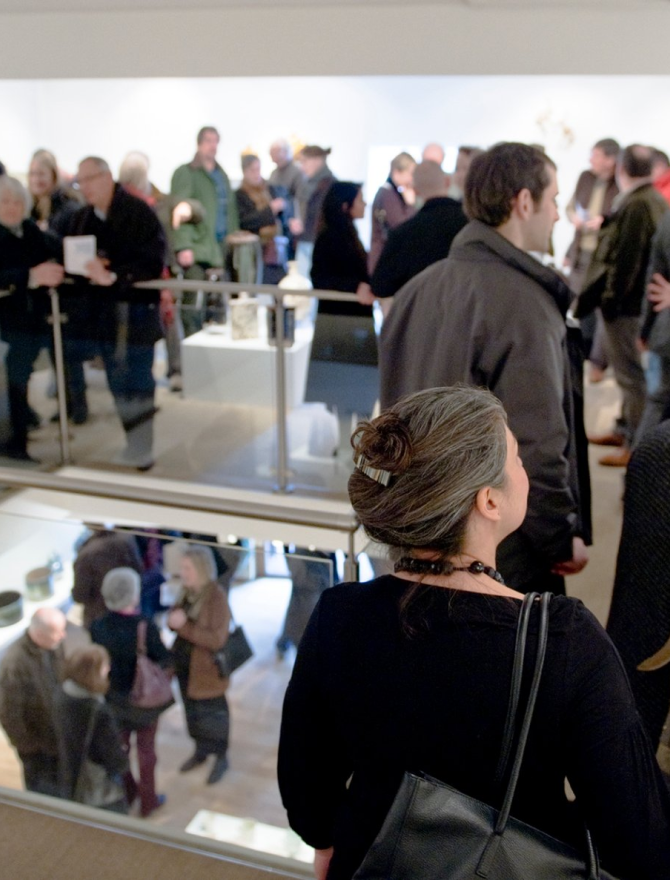 Goldmark is delighted to be a member of the International Fine Print Dealers Association, the Fine Art Trade Guild and the Confederation Internationale de Negociants en Oeuvres d'Art.READ MORE
Goldmark is delighted to be a member of the International Fine Print Dealers Association, the Fine Art Trade Guild and the Confederation Internationale de Negociants en Oeuvres d'Art.READ MORE
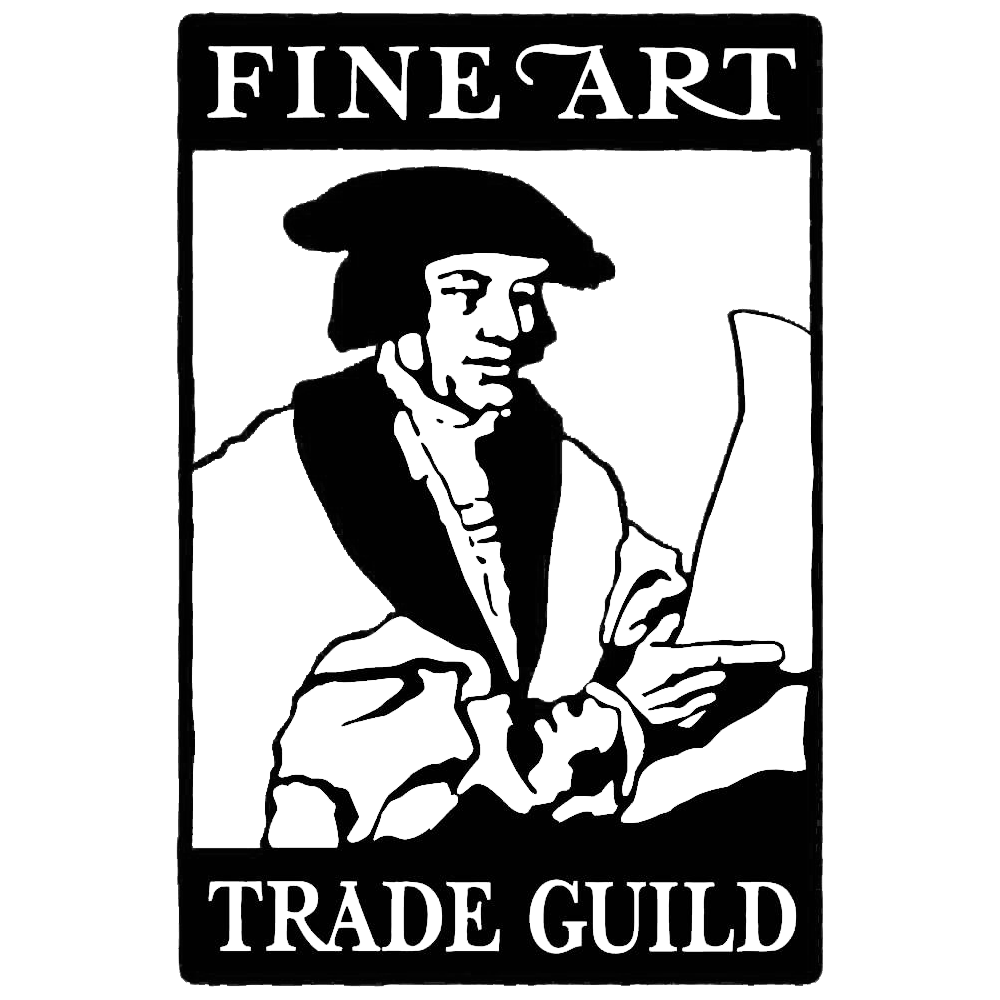

Recently Viewed
- Choosing a selection results in a full page refresh.
